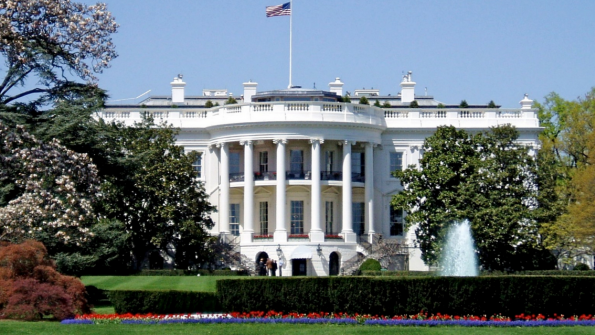Senate approves $1.7T government funding measure
The Senate passed a $1.7 trillion government funding measure Thursday that includes more than $60 billion for federal highway programs, $40.6 billion to assist communities recovering from natural disasters and $44.9 billion in emergency aid for Ukraine.
“We applaud the Senate’s bipartisan approach and support for the FY2023 funding package and urge the House to pass this legislation before the Dec. 23 deadline,” said Clarence E. Anthony, CEO and executive director of the National League of Cities.“We are grateful for funding increases for priority programs that can help America’s cities, towns and villages address their most pressing needs like increasing housing affordability and availability, strengthening local infrastructure, creating better workforce and education opportunities and providing more support for public safety.”
Along with transportation and disaster recovery, the bill includes domestic line items for everything from public schools and environmental protection to health care and scientific research, according to a statement from Sen. Patrick Leahy, D-Vt., chairman of the Senate Committee on Appropriations.
The Senate’s vote on the bill was 68 in favor and 29 against. It includes $772.5 billion for non-defense programs, including $118.7 billion for the Department of Veterans Affairs medical care (representing a 22 percent increase), and $858 billion in defense spending. There’s also funding directed at reducing the impact of inflation.
“The pain of inflation on American families is real, and it is being felt right now across the federal government,” Leahy said in a statement. “From funding for nutrition programs and housing assistance, to home energy costs and college affordability, our bipartisan, bicameral, omnibus appropriations bill directly invests in providing relief from the burden of inflation on the American people.”
For education, the measure increases Title I-A grants to local agencies by 5 percent year over year to $18.3 billion, and by 6 percent for Special Education State Grant Programs, to $15.1 billion. Funding for the Child Care and Development Block Grant went up by 30 percent to $8 billion, and Head Start increased by 8.6 percent to $11.9 billion.
To address the nation’s health care needs, $47.5 billion has been set aside for the National Institutes of Health, $9.2 billion will go to the Centers for Disease Control and Prevention, $3.3 billion is for the Assistant Secretary for Preparedness and Response (biosecurity and research), and $1.5 billion is intended to accelerate the pace of medical breakthroughs. Another $4.9 billion is targeted at addressing opioid misuse.
For food insecurity, the Supplemental Nutrition Assistance Program will receive $154 billion, and $28.5 billion will go to Child Nutrition Programs. The Environmental Protection Agency will receive $10.1 billion, including a $72 million increase for EPA enforcement and compliance programs, a $32 million increase for clean air programs, a $33 million increase for water programs, and a $20 million increase for toxic chemical programs. More than $3.4 billion has been set aside for the National Park Service, and $4.3 billion will go toward wildland firefighting efforts.
Elsewhere in the legislation, Tribal programs are slated to receive $10.8 billion, and the Community Development Block Grant program will receive $6.3 billion. And finally, science funding will see a historic increase under the measure. The National Science Foundation’s budget will go up 12 percent to $9.9 billion, its largest increase of all time.
The measure also updates the 1887 Electoral County Act, which was at the center of last year’s Jan. 6 insurrection riot. Looking ahead, the House must pass the bill by Friday night to avoid a partial government shutdown.




















